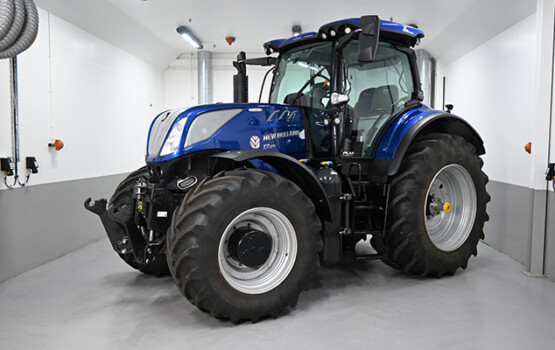Portal for more climate-friendly mobility
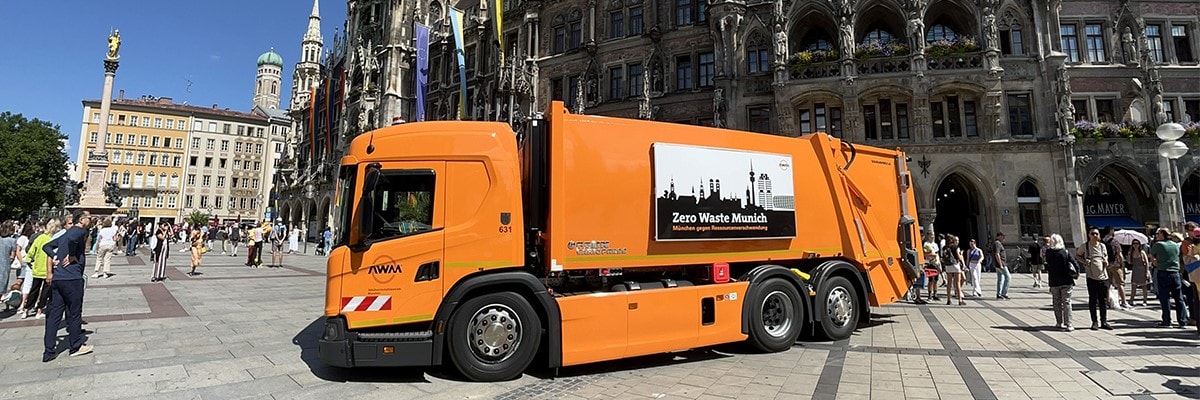
60 biogas trucks close the cycle
Munich has set itself the goal of significantly reducing its waste volumes by 2035. With 15% less household waste per capita and closed material cycles, the Bavarian state capital is aiming to increase sustainability. 60 refuse trucks with CNG drive and biogas in the tank are a contributing factor.
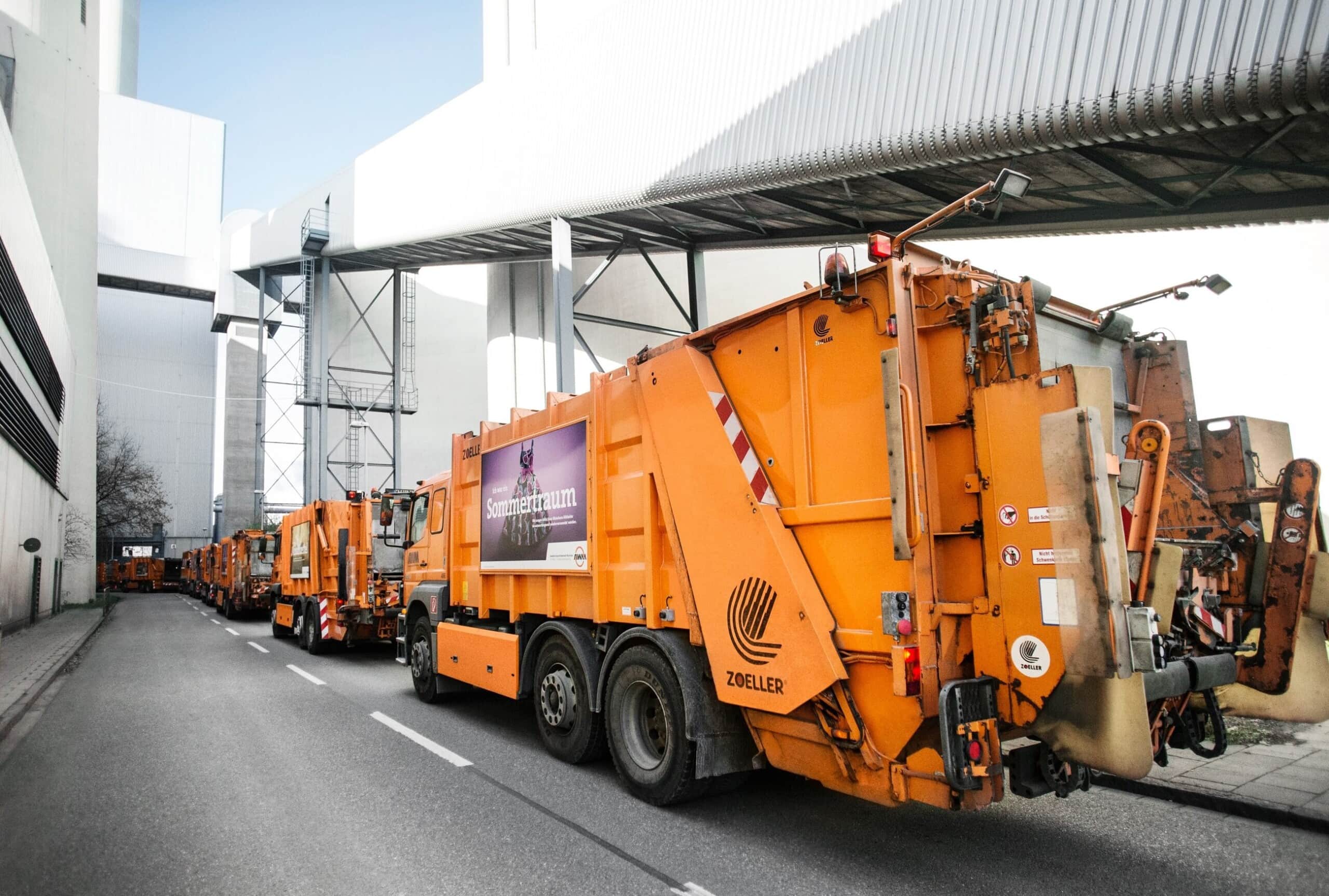 A total of 184 refuse collection vehicles are in use for the Abfallwirtschaftsbetrieb München (AWM), and in the medium term all of them are to be converted to environmentally friendly drive systems. Source: AWM
A total of 184 refuse collection vehicles are in use for the Abfallwirtschaftsbetrieb München (AWM), and in the medium term all of them are to be converted to environmentally friendly drive systems. Source: AWM
Around 720,000 tonnes of municipal waste are generated in Munich every year, of which around 43% is so-called residual waste which cannot be separated. These large quantities of refuse are not only a waste of resources, they also require enormous amounts of energy for collection, sorting and treatment. This is why the city council passed the resolution “Circular Munich – circular economy for a sustainable Munich” two years ago.
The 200-page zero-waste concept is now in place, developed by the Munich waste management company (AWM) in cooperation with Wuppertal Institute, Stakeholder Reporting, Prognos and Rehab Republic e.V. “Munich has set itself ambitious goals with its zero-waste concept. 56 kilograms less household waste per year – the aim is achieve this figure for every Munich resident by 2035,” explains Kristina Frank, municipal officer and first AWM plant manager. “That would be 85,000 tonnes less waste for our city. In order to make Munich a city with less waste, we need the support of everyone – households, businesses, politicians and the city administration.”
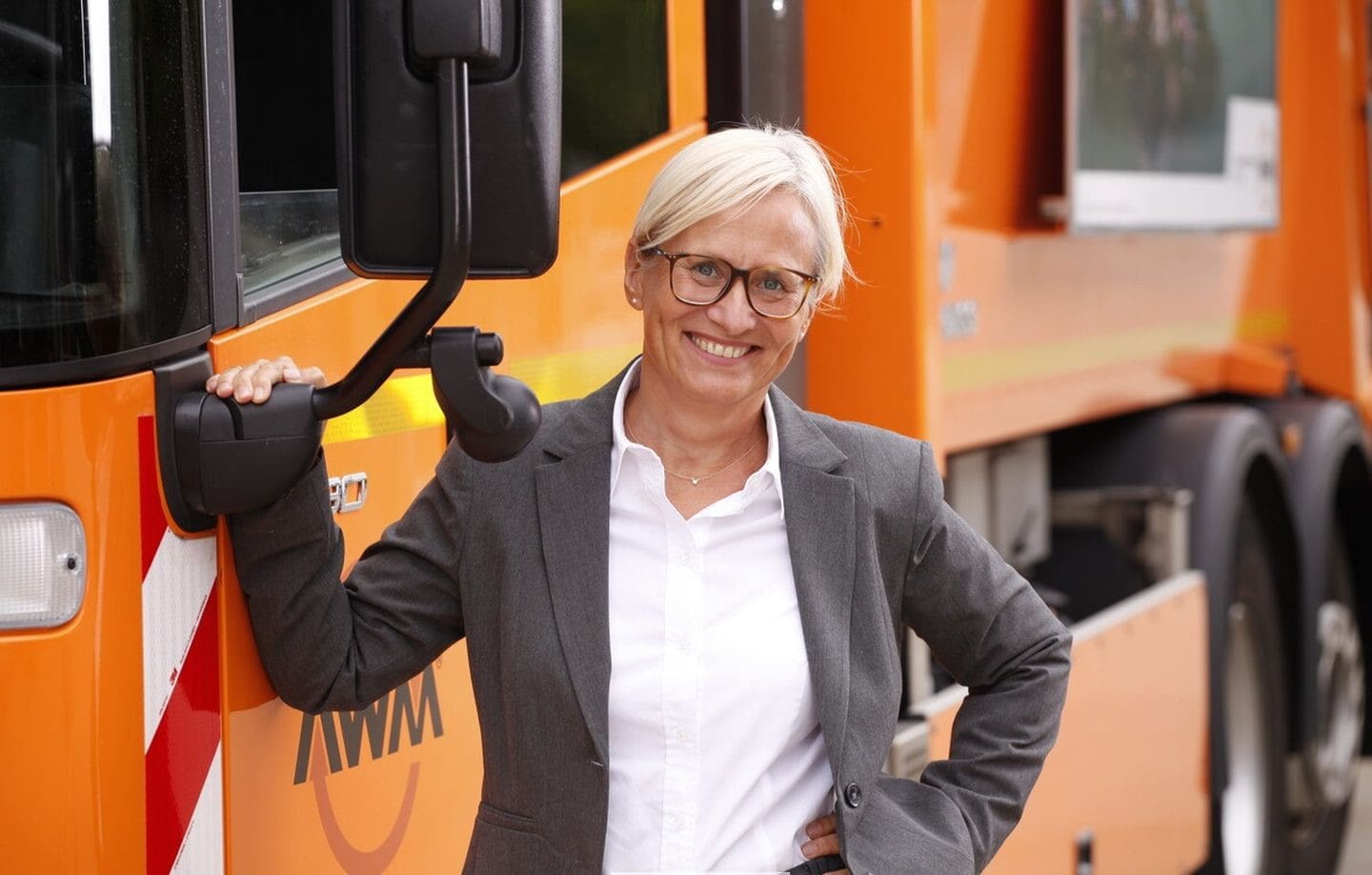
AWM’s second plant manager Sabine Schulz-Hammerl appreciates not only the CNG drive, but also the smoother starting behaviour of the CNG Scania with Allison fully automatic transmission. Source: AWM
Bavaria already sets a good example when it comes to waste prevention, resource conservation, waste management and the closure of material cycles. At the world-famous Oktoberfest, a ban on single-use plastic was introduced decades ago, reducing residual waste by 90% at the Wiesn. Since 2008, the company has also been using a large dry fermentation biogas plant with a capacity of 25,000 tonnes per year. Meanwhile, the fleet of refuse collection vehicles with a CNG drive has grown to 60 units.
As one of the largest municipal waste disposal companies in Germany, AWM ensures that the collection vehicles are as climate-friendly as possible. It runs a total of 184 waste collection vehicles and intends to convert all of them to environment-friendly drive systems in the medium term. This is why an additional 34 Scania R series 280 B 6×2*4 with CNG drive were ordered. The final tranche is due to be delivered this autumn. The trucks are fitted with a fully automatic Allison transmission that perfectly matches the CNG drive and is ideal for the start-stop work cycles of municipal vehicles in urban traffic.
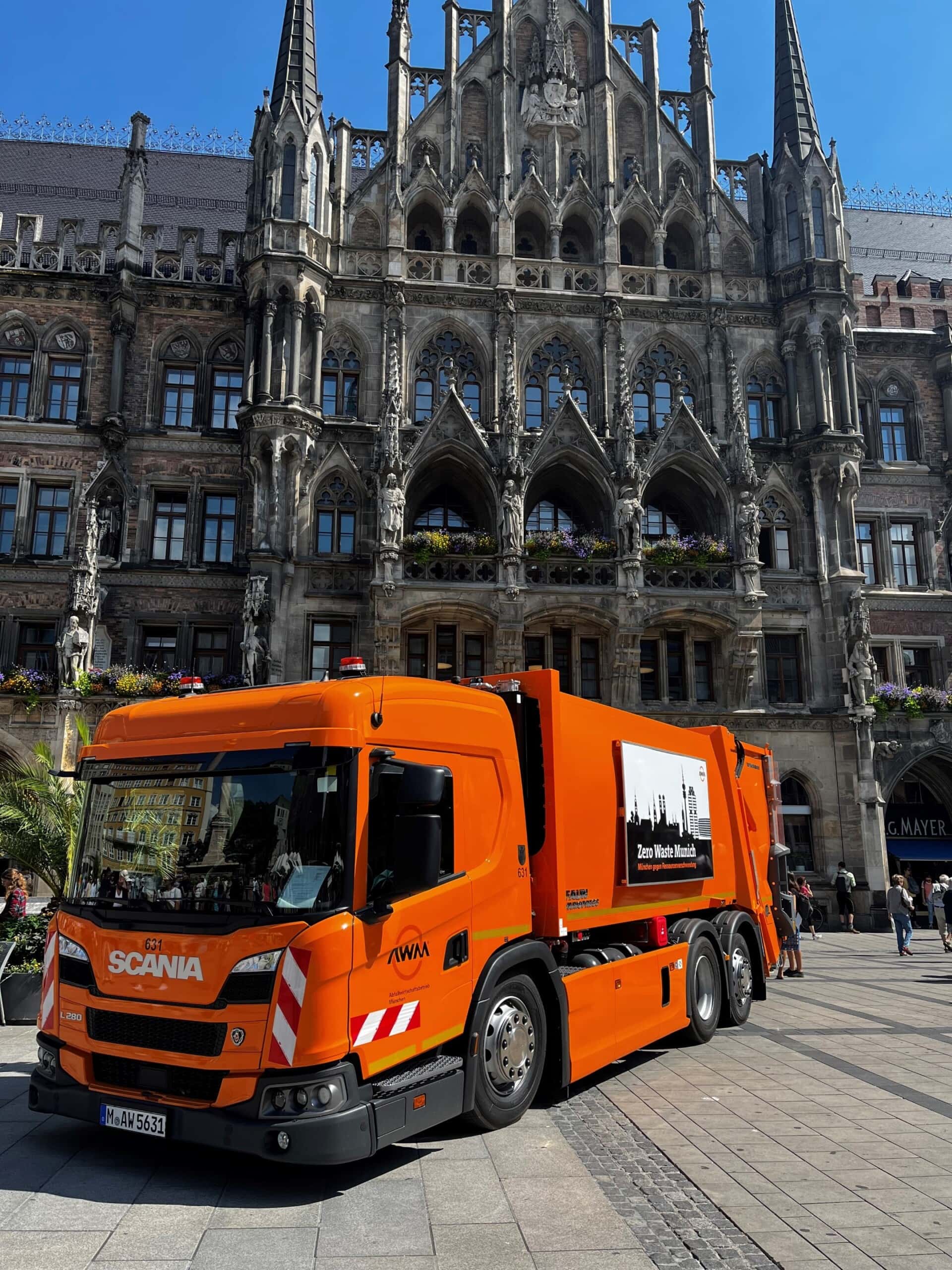 One of the 34 Scania R-series 280 B 6×2*4 trucks with CNG drive and biogas in the tank for almost CO2-neutral waste collection in front of Munich City Hall. Source: AWM
One of the 34 Scania R-series 280 B 6×2*4 trucks with CNG drive and biogas in the tank for almost CO2-neutral waste collection in front of Munich City Hall. Source: AWM
“For the loading personnel on the running boards at the rear of the CNG truck, it’s much more convenient if they don’t get shaken every time the truck drives off,” says second AWM plant manager Sabine Schulz-Hammerl. Matthias Thiem of Scania Municipal and Special Vehicles Sales agrees: “The overall package makes a lot of sense. Allison is unbeatable in such applications with up to 700 engine stops per day.”
Operating the refuse collection vehicles with biogas makes a lot of sense, too. After all, the CNG vehicles collect organic residues and green waste – which is actually their own energy source. With biogas in the tank, they are virtually CO2-neutral, thereby helping the Bavarian disposal specialists to close important material cycles and take a step towards the goal of zero waste. (jas, 23 August 2022)
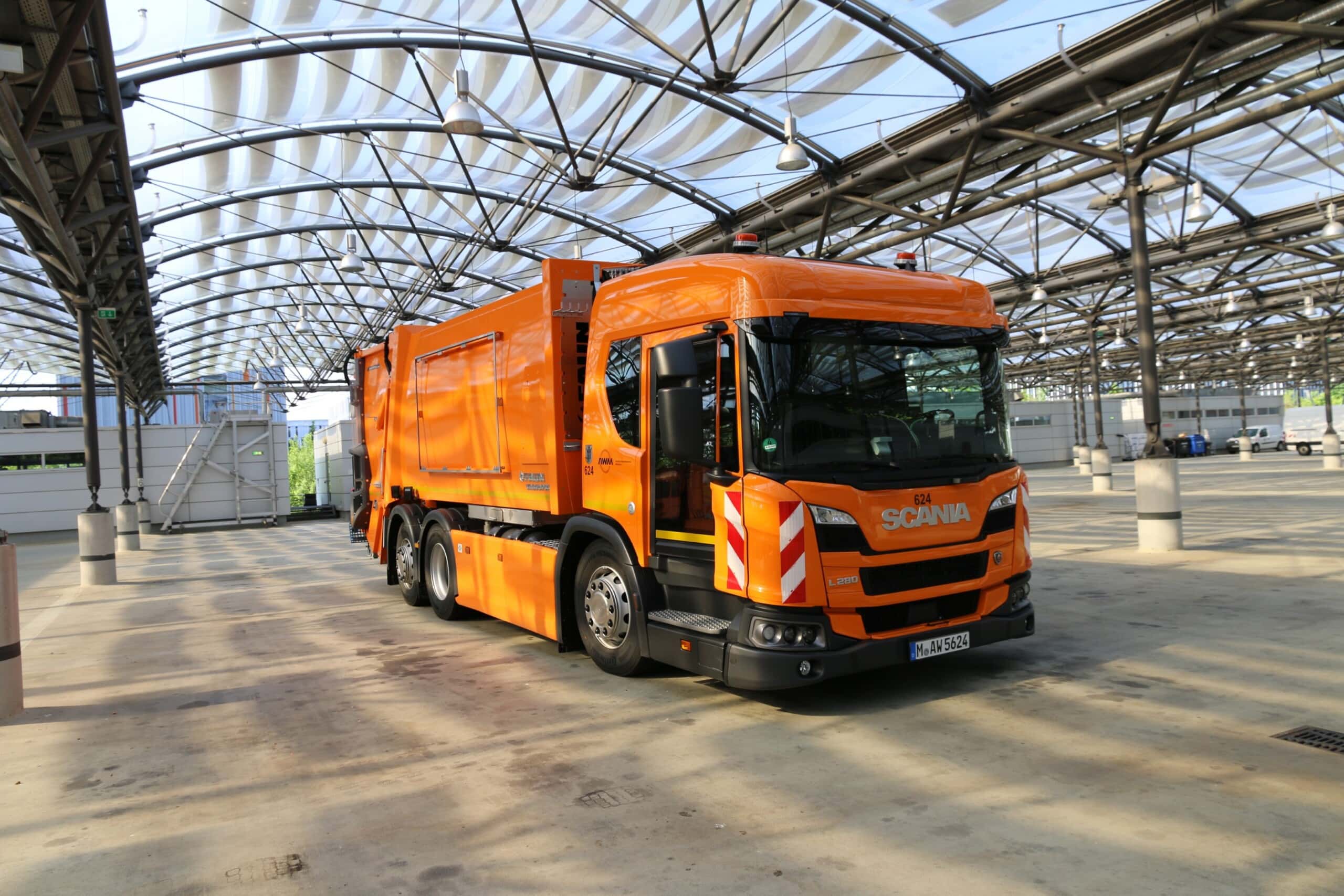 Munich has set its sights very high with the Zero Waste concept and also wants to close material cycles with the help of biogas trucks, among other things. Source: AWM
Munich has set its sights very high with the Zero Waste concept and also wants to close material cycles with the help of biogas trucks, among other things. Source: AWM
You might also be interested in
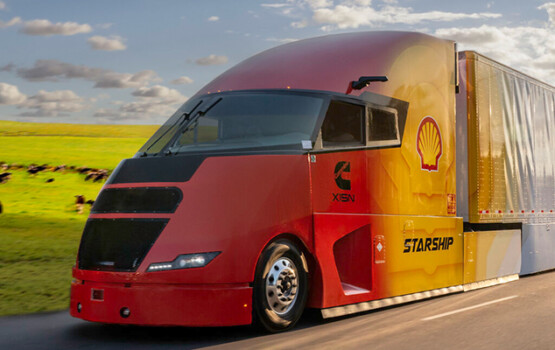
Shell Starship on record hunt
